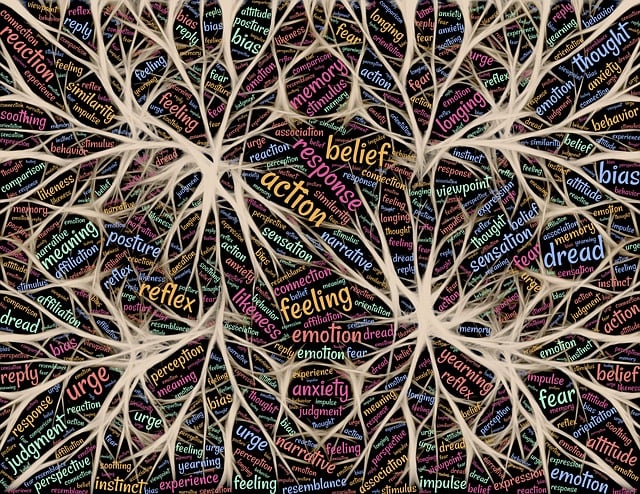When someone tries to get a reaction out of you, they are attempting to provoke a response or an emotional reaction from you.
Additionally, this can be for various reasons, such as seeking attention, trying to gauge your emotions, testing your patience, or even attempting to manipulate your behavior.
Moreover, you can respond by staying calm, ignoring them, setting boundaries, using humor, redirecting the conversation, showing empathy, or disengaging if necessary. Choose a response that aligns with your values and desired outcome.
What Are The Reasons Behind Provocation?

The intricate triggers of human provocation reveal a complex interplay of emotions and perceptions, shedding light on the multifaceted reasons that drive such reactions.
Seeking Attention and Validation
When someone tries to provoke a reaction from you, one of the underlying motives might be seeking attention and validation. In addition, individuals who feel unnoticed or underappreciated may resort to provocation as a way to ensure that they have your focus and engagement.
Moreover, by eliciting a reaction, they gain a sense of importance and confirmation that they matter.
- People seeking attention might resort to extreme behavior because they believe it’s the only way to stand out.
- Recognizing their need for attention can help you respond with empathy and without becoming overly reactive.
- Setting healthy boundaries can prevent them from relying on provocation to gain attention.
Testing Emotional Responses
Some individuals provoke reactions to assess your emotional responses. Additionally, they might be curious about how you handle stress, frustration, or conflict.
However, testing your emotions can give them insights into your personality and weaknesses, enabling them to better understand and potentially manipulate you.
- Basically, your response can reveal valuable information about your emotional resilience and self-control.
- Demonstrating emotional intelligence in your response can show that you are not easily manipulated.
- Staying composed during such situations can lessen their ability to understand your vulnerabilities.
Manipulating Behavior:
Provoking reactions can also be a form of manipulation. People who are skilled at understanding human behavior might use provocation to control their actions or decisions. In addition, by intentionally evoking specific emotions, they can steer you toward a desired outcome.
- Being aware of manipulative tactics can help you maintain your autonomy and make decisions based on your own judgment.
- Setting clear boundaries and asserting your own needs can counter attempts at manipulation.
- Recognizing patterns of manipulation allows you to respond more strategically and effectively.
What Are The Strategies for Responding?
Navigating provocation effectively demands a thoughtful array of responses that encompass emotional intelligence, assertiveness, and conflict-resolution skills.
Stay Calm and Composed:
Remaining calm and composed in the face of provocation can help de-escalate the situation. Additionally, when you react with anger or frustration, you might inadvertently give the provocateur the reaction they’re seeking, which could escalate the situation further.
Emotions can be contagious; your calm demeanor might influence the other person to calm down as well. Taking a deep breath and giving yourself a moment to collect your thoughts can prevent knee-jerk reactions. Practicing mindfulness or relaxation techniques can enhance your ability to stay composed under pressure.
Ignoring Provocation
Ignoring the attempts to provoke you can be a powerful response. When the provocateur realizes that their efforts aren’t getting the desired response. In addition, they might lose interest in continuing.
Silence can be a powerful message, indicating that their behavior won’t affect you. This strategy works best when the provocation is mild and not escalating to a harmful level.
Setting Boundaries
Setting clear and respectful boundaries communicates that you won’t tolerate disrespectful behavior. Assertive communication shows that you value yourself and expect to be treated with respect.
- Boundaries should be communicated calmly and firmly, without aggression or defensiveness.
- Be specific about what behavior is unacceptable and the consequences if the behavior continues.
- Consistently enforcing your boundaries is crucial to maintaining their effectiveness.
Using Humor
Responding with humor can catch the provocateur off guard and shift the tone of the interaction. Furthermore, a well-placed joke can defuse tension and neutralize their attempts to provoke you.
- Humor can lighten the mood and create a shared moment of levity.
- Choose humor that isn’t offensive or hurtful, as that could escalate the situation.
- This strategy works best when the provocateur isn’t using harmful or hurtful language.
Redirecting the Conversation
By redirecting the conversation to a different subject, you can sidestep the provocative topic and move the interaction in a more constructive direction.
- Choose a topic that is unrelated to the provocation and that both parties might find interesting.
- Skillfully transition the conversation to a new topic without making it feel forced.
- This strategy can help break the cycle of provocation and promote healthier dialogue.
Demonstrating Empathy
Showing empathy towards the provocateur’s emotions or motivations can help them feel understood, potentially diffusing their need to provoke a reaction.
- Empathy doesn’t mean condoning their behavior, but rather understanding their perspective.
- Use reflective listening to show that you’re actively trying to understand their feelings.
- Demonstrating empathy can open the door to more meaningful communication.
Disengaging When Necessary
If the provocateur’s behavior becomes toxic or harmful, disengaging and removing yourself from the situation is a valid response. Your well-being is paramount.
- Disengaging doesn’t mean you’re weak; it’s a sign of self-respect and self-care.
- Block or distance yourself from online provocations to maintain your emotional health.
- Seek support from friends, family, or professionals if the situation is affecting you deeply.
What Is The Empowerment Through Control?

Empowerment through control involves harnessing one’s ability to manage reactions and decisions in the face of provocation.
Emphasizing Control Over Emotional Responses
Emphasizing control over emotional responses is about recognizing that you have the power to choose how you react to provocation. In addition, your emotions don’t have to dictate your actions; you can consciously decide how to respond.
Aligning Responses with Personal Values and Goals
When someone attempts to provoke you, aligning your responses with your personal values and goals allows you to stay true to who you are and what you stand for.
Insights:
- Clarify your core values, such as respect, empathy, integrity, or open communication.
- Evaluate whether your potential response aligns with these values before reacting.
- Responding in alignment with your values reinforces your sense of self and maintains your integrity.
Benefits
- Empowerment: Aligning with your values reinforces your sense of self-worth and personal empowerment.
- Consistency: Consistently responding in line with your values builds trust in your relationships.
- Long-term Goals: Considering your goals helps you choose responses that contribute positively to your long-term aspirations.
- Self-Reflection: Regularly reflect on your values and goals to ensure they remain accurate and relevant.
- Adaptability: Some situations might require temporary adjustments to your responses while still staying true to your values.
FAQ’s
Why do people try to provoke reactions from others?
People might provoke reactions for various reasons, including seeking attention, testing emotional responses, manipulating behavior, or trying to assert dominance. Additionally, it can also stem from personal insecurities, frustration, or a desire for control.
How can I use humor effectively to disarm provocations?
Humor can lighten the mood, but it’s important to choose humor that is not offensive or hurtful. The goal is to defuse tension, not escalate it. Moreover, a well-timed, light-hearted comment can catch the provocateur off guard and shift the tone of the interaction.
What if the provocateur is a close friend or family member?
Provocations within close relationships can be challenging. Clear communication, setting boundaries, and addressing the issue in a non-confrontational manner might be necessary. Focus on resolving the underlying concerns while maintaining respect.
Is it ever okay to react strongly to provocation?
In some situations, a strong response might be appropriate, especially if the provocateur’s behavior is harmful or offensive. However, maintaining composure and responding thoughtfully generally yields more positive outcomes.
Can I learn to respond better to provocations over time?
Absolutely. Responding effectively to provocations is a skill that can be developed with practice and self-awareness. Learning from each interaction and fine-tuning your strategies can lead to improved outcomes and personal growth.
Conclusion
The art of responding to provocations is a skill that empowers you to maintain control over interactions and your own emotional well-being.
By understanding the motives behind provocation and utilizing thoughtful strategies, you can effectively navigate these situations while staying true to your values and goals.
Moreover, responding to provocations requires thoughtfulness and self-awareness to prevent knee-jerk reactions.
In addition, recognizing underlying motives behind provocations allows for empathy and more meaningful communication.











